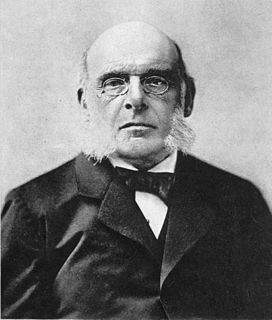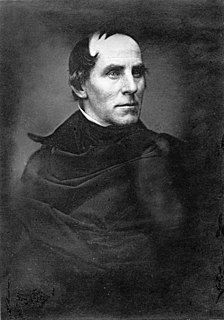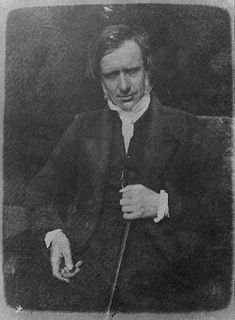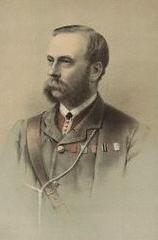A Quote by Timothy Dwight V
It is impossible for the mind which is not totally destitute of piety, to behold the sublime, the awful, the amazing works of creation and providence - the heavens with their luminaries, the mountains, the ocean, the storm, the earthquake, the volcano, the circuit of the seasons, and the revolutions of empires - without marking in them all the mighty hand of God, and feeling strong emotions of reverence toward the Author of these stupendous works.
Quote Topics
Related Quotes
The mystery of God's providence is a most sublime consideration. It is easy to let our reason run away with itself. It is at a loss when it attempts to search into the eternal decrees of election or the entangled mazes and labyrinths in which the divine providence walks. This knowledge is too wonderful for us. Man can be very confident that God exercises the most accurate providence over him and his affairs. Nothing comes to pass without our heavenly Father. No evil comes to pass without his permissive providence, and no good without his ordaining providence to his own ends.
For Calvin, the creation reflects its Creator at every point. Image after images flashed in front of our eyes, as Calvin attempts to convey the multiplicity of ways in which the creation witnesses to its Creator: it is like a visible garment, which the invisible God dons in order to make himself known; it is like a book in which the name on the Creator is written as its author; it is like a theater, in which the glory of God is publicly displayed; it is like a mirror, in which the works and wisdom of God are reflected.
It has been jestingly said that the works of John Paul Richter are almost unintelligible to any but the Germans, and even to some of them. A worthy German, just before Richter's death, edited a complete edition of his works, in which one particular passage fairly puzzled him. Determined to have it explained at the source, he went to John Paul himself. The author's reply was very characteristic: "My good friend, when I wrote that passage, God and I knew what it meant; it is possible that God knows it still; but as for me, I have totally forgotten."
O, this faith is a living, busy, active, powerful thing! It is impossible that it should not be ceaselessly doing that which is good. It does not even ask whether good works should be done; but before the question can be asked, it has done them, and it is constantly engaged in doing them. But he who does not do such works, is a man without faith. He gropes and casts about him to find faith and good works, not knowing what either of them is, and yet prattles and idly multiplies words about faith and good works.
. . .nature is still predominant, and there are those who regret that with the improvements of cultivation the sublimity of the wilderness should pass away: for those scenes of solitude from which the hand of nature has never been lifted, affect the mind with a more deep toned emotion than aught which the hand of man has touched. Amid them the consequent associations are of God the creator-they are his undefiled works, and the mind is cast into the contemplation of eternal things.
Every object in nature is impressed with God's footsteps, and every day repeats the wonders of creation. There is not an object, be it pebble or pearl, weed or rose, the flower-spangled sward beneath, or the star-spangled sky above, not a worm or an angel, a drop of water or a boundless ocean, in which intelligence may not discern, and piety adore, the providence of Him who took our nature that He might save our souls.
It is impossible for anyone who studies the life and character of the great Prophet of Arabia, who knows how he taught and how he lived, to feel anything but reverence for that mighty Prophet, one of the great messengers of the Supreme. And although in what I put to you I shall say many things which may be familiar to many, yet I myself feel whenever I re-read them, a new way of admiration, a new sense of reverence for that mighty Arabian teacher.
Behold, I have reached the peak of the mountain and my spirit has taken flight in the heavens of freedom and liberation. I have gone far, far away, O children of my mother; the hills beyond the mists are now hidden from my view, the last traces of the valleys have been flooded by the ocean of serenity, and the paths and trails have been erased by the hand of oblivion. The roar of ocean waves has faded. I no longer hear anything but the anthem of eternity, which harmonizes with the spirit.































